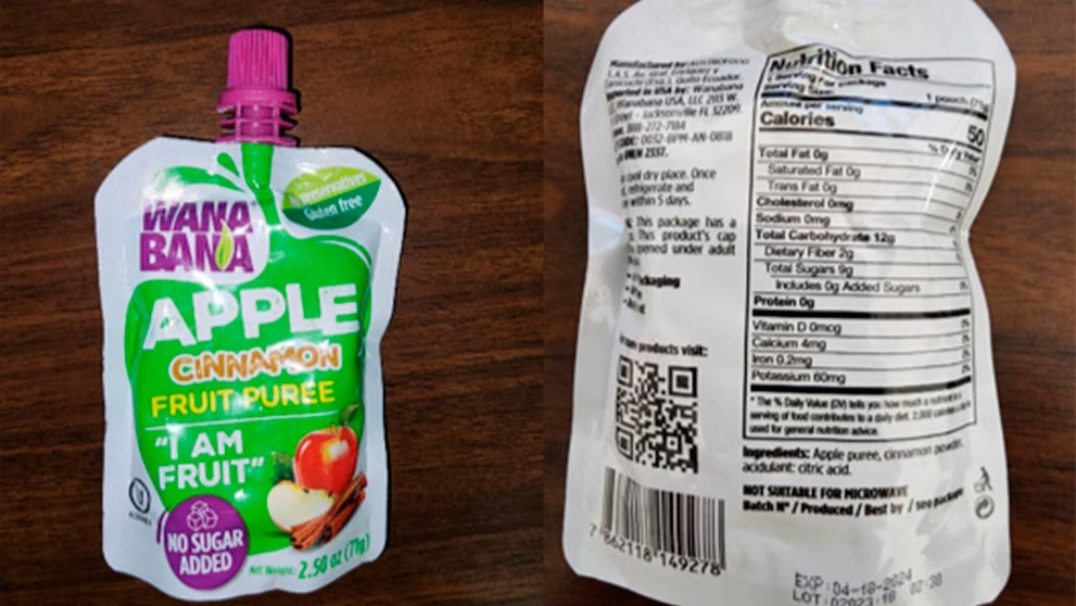Nearly two dozen toddlers sickened by lead linked to contaminated apple sauce
Products from the brands WanaBana and Schnucks and Weis have been recalled

The CDC has warned paediatric physicians across America about potential cases of lead poisoning in children tied to a brand of pouches of cinnamon apple puree and applesauce.
At least 22 toddlers between the ages of one to three in 14 states were sickened by lead linked to the products. One of the minors showed a blood lead level eight times higher than the level that raises concern, according to the Centers for Disease Control and Prevention.
The illnesses are part of an outbreak linked to recalled pouches of fruit puree marketed to kids from the brands WanaBana apple cinnamon fruit puree and Schnucks and Weis cinnamon applesauce pouches, The Associated Press reports. The products were sold in stores and online.
The products are sold at Dollar Tree stores and through Amazon. The company is investigating the source of the contamination.
Although there’s no safe level of lead exposure, the CDC uses a marker of 3.5 micrograms per deciliter to identify children with higher levels than most. The affected children’s blood lead levels ranged from 4 to 29 micrograms per deciliter.
As of 7 November, cases were reported in Alabama, Arkansas, Louisiana, Maryland, Missouri, New Mexico, New York, North Carolina, Ohio, Pennsylvania, South Carolina, Tennessee, Texas and Washington.
The children experienced symptoms including headaches, nausea, vomiting, diarrhoea, a change in activity level and anaemia. However, children who are affected may show no symptoms at all.
Parents and caregivers who believe their children may have eaten those products should have them tested for lead levels. Minors under the age of six are at higher risk, because their bodies are rapidly developing and “more susceptible to taking in lead if exposed,” per the CDC.
Exposure to lead can lead to serious learning and behavioural problems.
Heavy metals like lead can get into food products from soil, air, water or industrial processes, according to the American Academy of Pediatrics. Paint in homes built before 1978, certain foods, cosmetics, imported medication and contaminated products can also have dangerous levels of lead.
Subscribe to Independent Premium to bookmark this article
Want to bookmark your favourite articles and stories to read or reference later? Start your Independent Premium subscription today.

Join our commenting forum
Join thought-provoking conversations, follow other Independent readers and see their replies